Which neighborhoods in Istanbul have a high risk of earthquake?
Istanbul started January with another earthquake. This time it happened on 22.01.2020 in the Balykesil area with an amplitude of 4.6 points. Not to say that this is the event of the century, Turkey is constantly shaking, including Istanbul. In September 2019, Istanbul felt repeated tremors with an epicenter in Silivri. These were tremors with an amplitude of 4.7 points. Underground tremors were recorded at a depth of 5 km, the length was 20 kilometers, so residents of different districts could feel the fluctuations. The earthquake destroyed the minaret of one of the mosques, part of which collapsed, and the remaining part was strongly tilted:
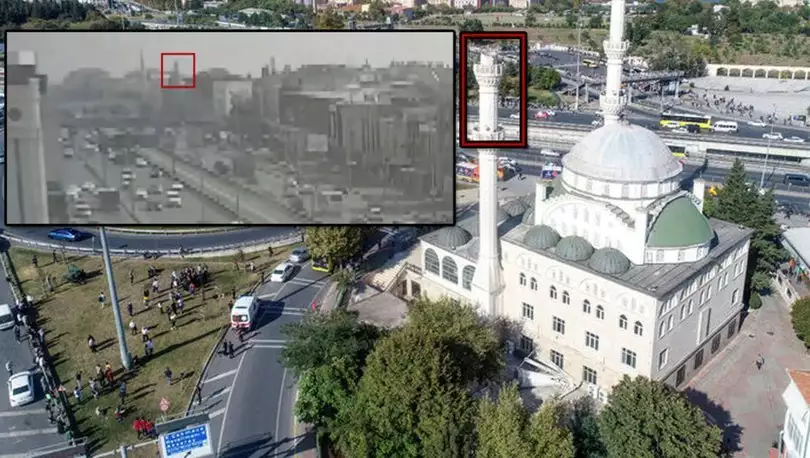
The mosque whose minaret collapsed in the earthquake
Even earlier on August 17, 1999 in Izmit, Kocaeli County, which is very close to Istanbul, there was an earthquake with an amplitude of more than 7.7 points, which claimed more than 17 million lives, 25 thousand people were injured and about 600 thousand people were left without a roof over their heads.
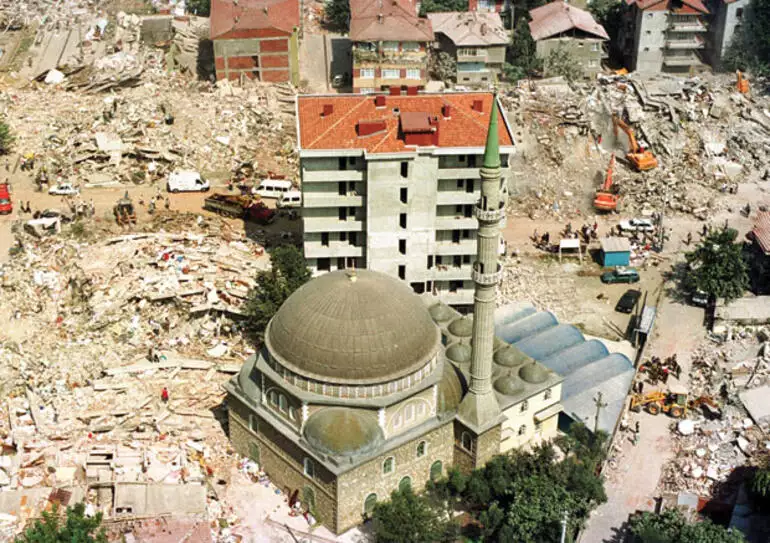
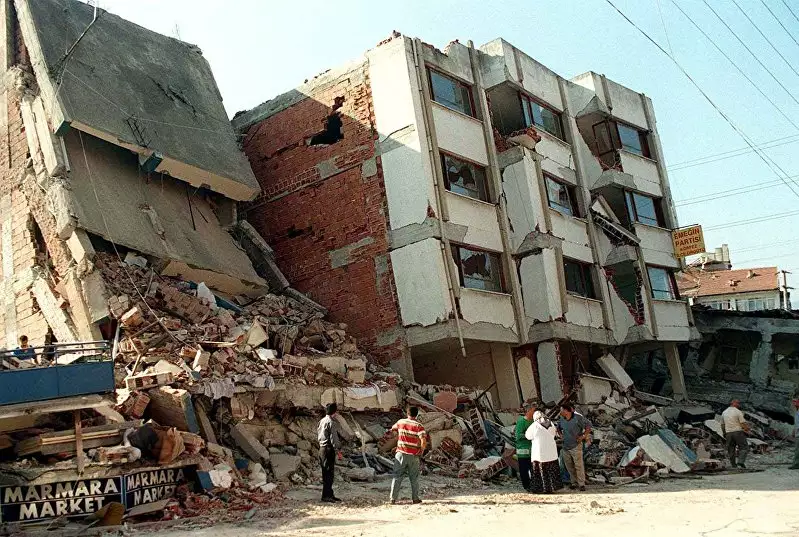
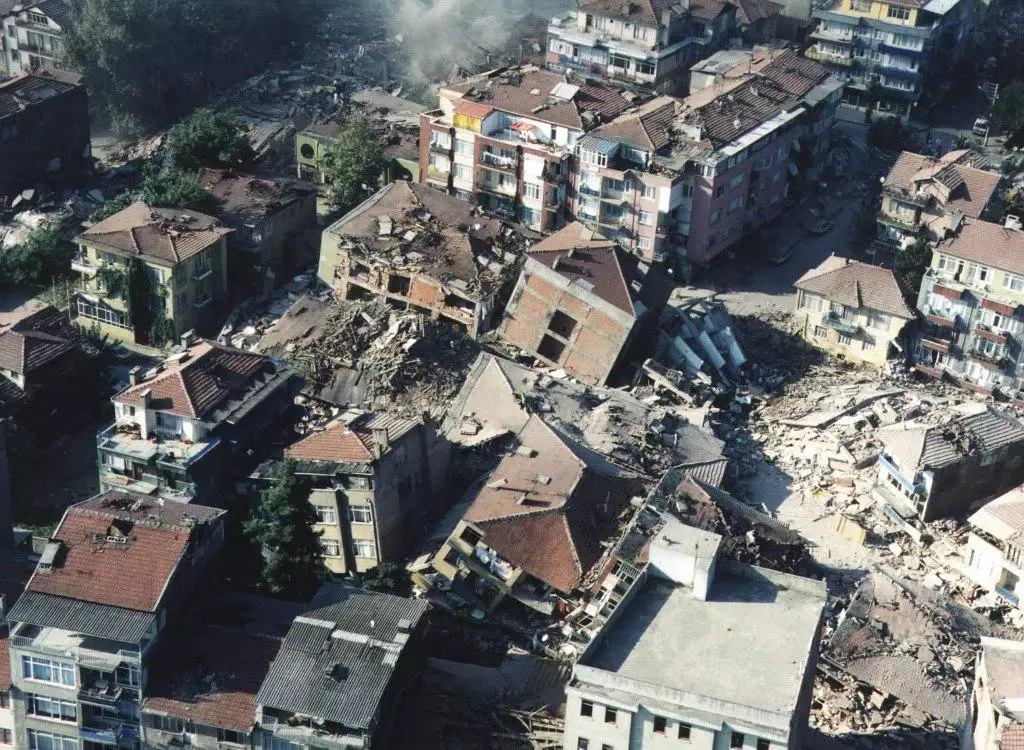
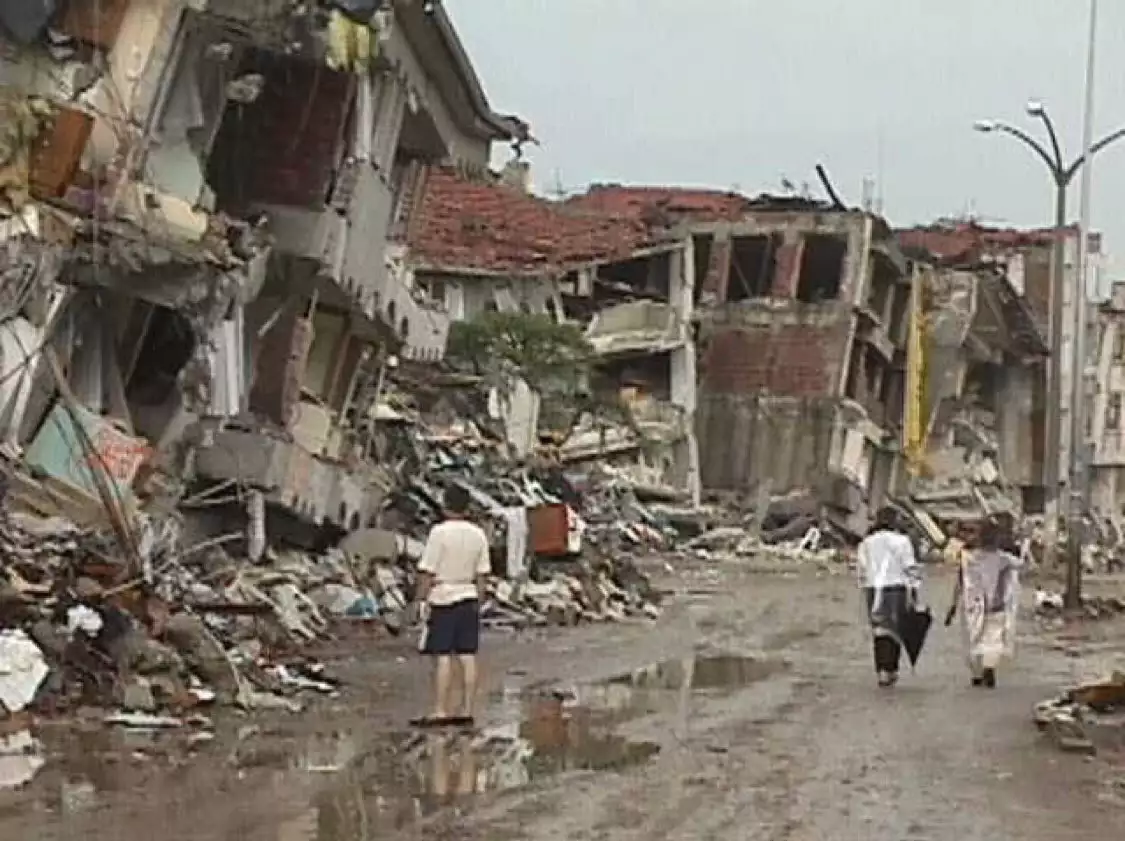
Aftermath of the 1999 earthquake in Izmit, Kocaeli Province, Turkey (near Istanbul)
There was another major earthquake in Istanbul in the Marmara Sea area in 1766, and the city had to rebuild its infrastructure for more than 8 months. A part of the Ayia Sophia Cathedral collapsed.

The Istanbul earthquake of 1766.
Causes of frequent earthquakes. 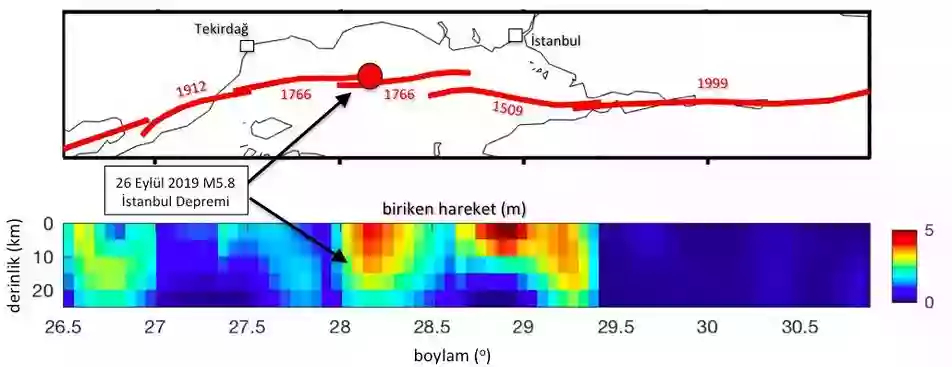
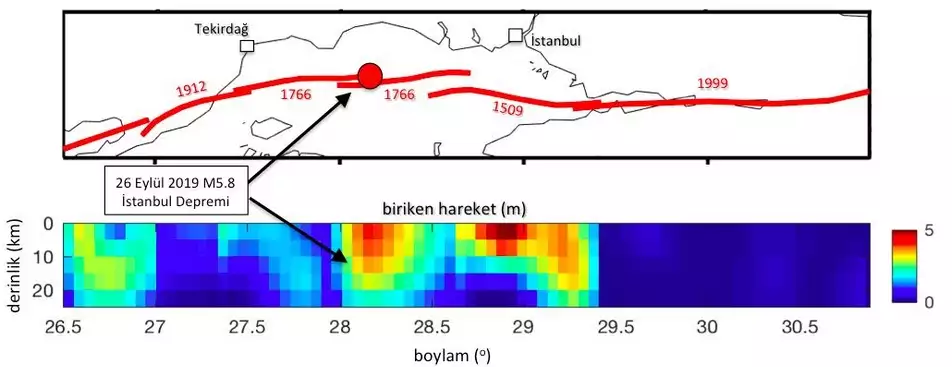
Displacement of earthquake epicenters
The point is that the region itself is located on the North Anatolian Fault, which stretches for almost 1200 km along the bottom of the Aegean and Marmara Seas. Here the big lithospheric plates - Anatolian (which includes all of Turkey and part of Asia Minor) and Eurasian (which includes all of Europe and most of Asia) - touch each other. When the plates move, the irregularities create points of tension, resistance. The energy released creates those tremors. There's evidence that the plates are calmer now and that in previous centuries earthquakes were more frequent.
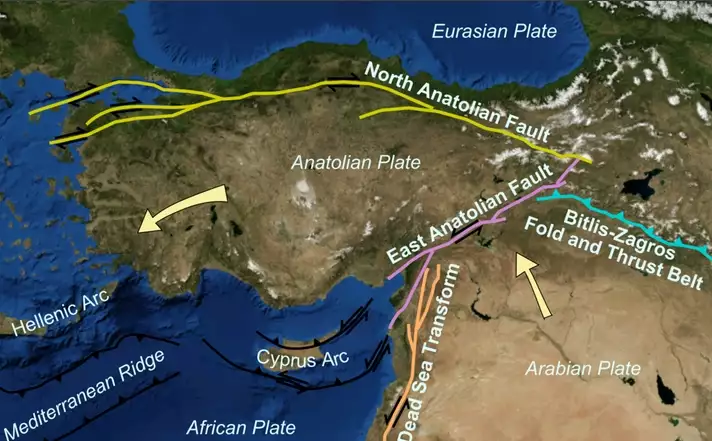
Movement of tectonic plates. North Anatolian fault (yellow line) as a zone of frequent earthquakes.
There is one segment of the Anatolian plate that moves slower than the rest and creates stress zones in the Sea of Marmara, roughly in the waters of the Princes' Islands, which is just 8 kilometers west of Istanbul.
29 September 2025
9 October 2024
29 January 2025
9 October 2024
29 January 2025
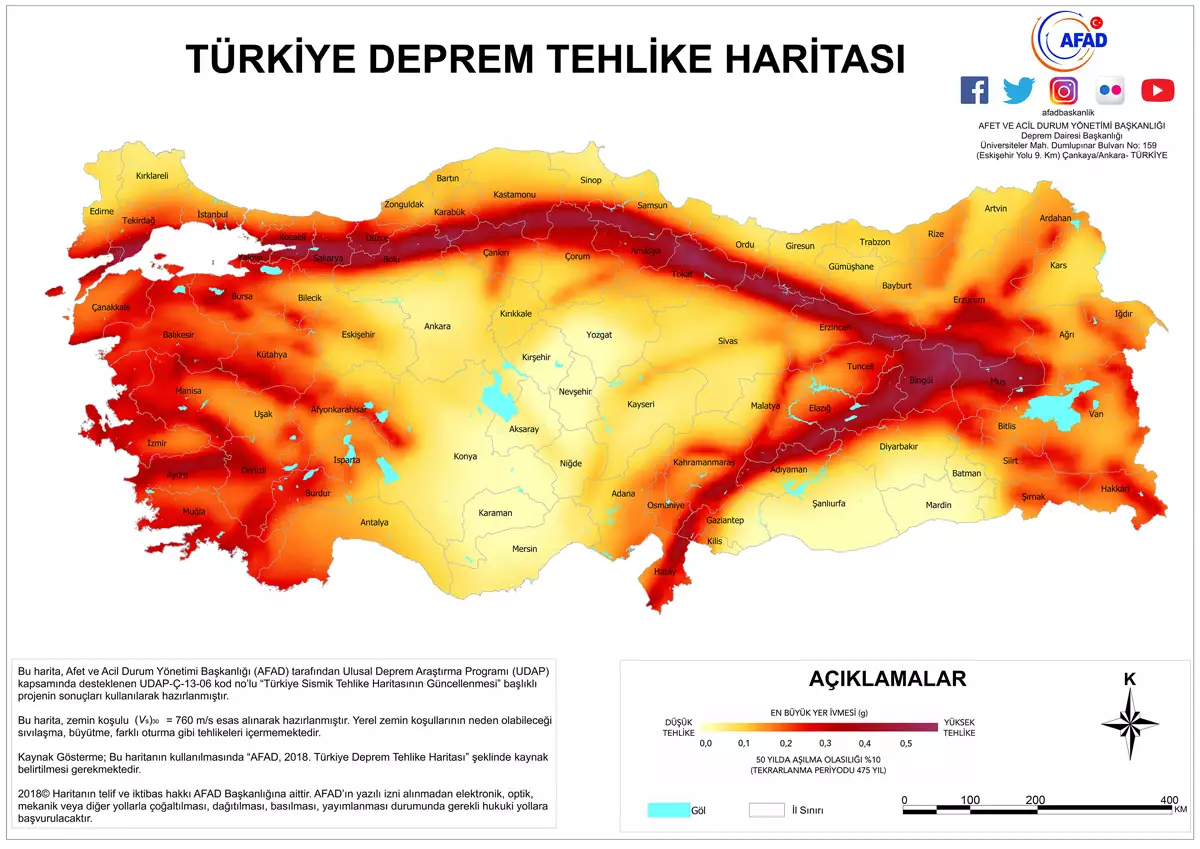
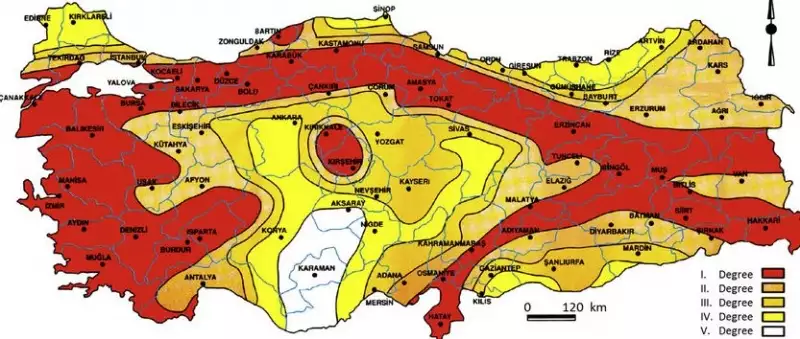
Old and new maps of earthquake hazard zones in Turkey. Red color shows the highest risk of earthquakes
Therefore, in and around Istanbul There are more than 250 seismic stations. Man, unlike many animals, has not been able to distinguish between minor vibrations preceding serious ones. But on the websitehttps://deprem.afad.gov.tr/possibleto monitor fluctuations in real-time.
What should be considered when buying property in Istanbul?
Since Istanbul is and will continue to be located in an unstable seismic zone, there are certain factors to consider when buying property in this historic city. After the tragedy in Izmit in 1999, great importance has been placed on seismic resistance in building design throughout Turkey. Prices for secondary housing built before the earthquake are significantly lower because these homes were likely restored. However, they can sometimes be unsafe. To find out if the house you plan to live in has a seismic resistance certificate, you need to contact the local municipality. There is a special map of Istanbul and Turkey that shows seismically hazardous zones.
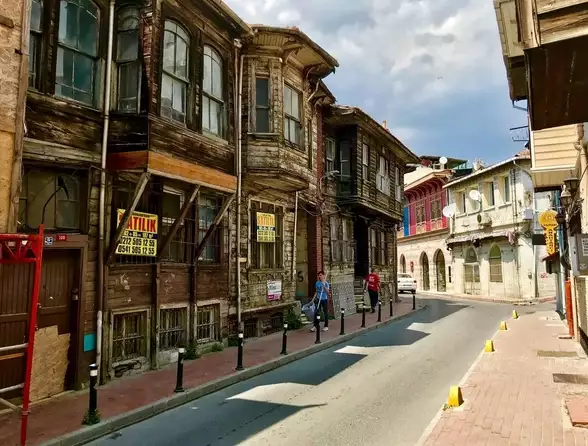
Old wooden houses in the Balat area, Istanbul
In certain areas of Istanbul, the risk of earthquakes is higher.
The districts located closer to the sea, namely Büyükçekmece, the Princes' Islands, Avcılar, Bakırköy, Eminönü, Kadıköy, Kartal, Küçükçekmece, Maltepe, Pendik, Sultanbeyli, Tuzla, Üsküdar, and Zeytinburnu, fall into the zone of maximum risk.
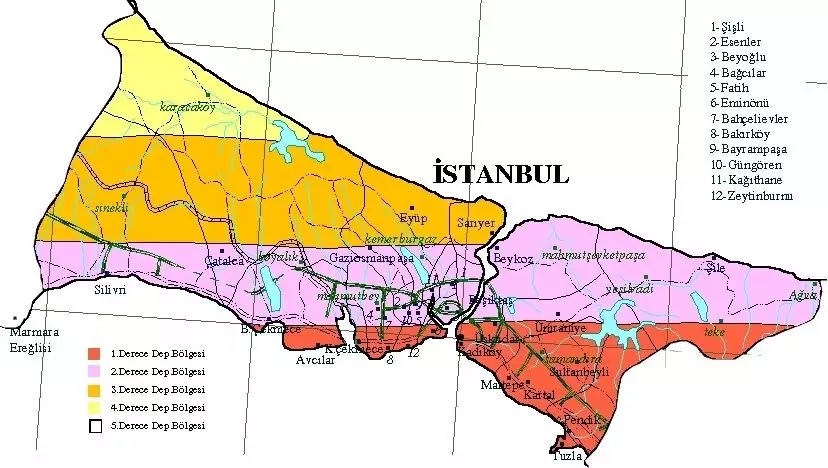
Seismic hazard zone map of Istanbul
Areas such as Silivri (where the epicenter was in September 2019), Gaziosmanpaşa, Beykoz, Beşiktaş, and Şişli have been classified as being in a moderate risk zone.
The lowest risk is in the Eyüp and Sarıyer districts.
As you can see, during significant tremors, the most expensive and prestigious areas of Istanbul are the most vulnerable. Nevertheless, Istanbul remains a multi-million metropolis that people strive to enter in order to settle here permanently.

Despite the risk of earthquakes, Istanbul remains one of the most beautiful cities in the world.
Did you like the article? Don't forget to share it with your friends; they might need this information. That's all for now.
See you at HataMatata.
Comment
Popular Posts
29 September 2025
453
9 October 2024
9974
9 October 2024
1498
29 January 2025
1578
Popular Offers

Subscribe to the newsletter from Hatamatata.com!
Subscribe to the newsletter from Hatamatata.com!
I agree to the processing of personal data and confidentiality rules of Hatamatata














